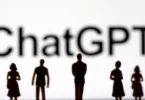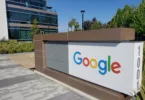On Tuesday, Tesla achieved a significant victory by winning the first trial in the United States concerning allegations that its Autopilot driver assistance feature was responsible for a fatal accident. This verdict is a substantial win for the automaker, particularly considering the numerous other lawsuits and federal investigations it faces relating to the same technology.

A Tesla Model X is on display at a Tesla service center in Costa Mesa, California, U.S., on October 20, 2020.
The outcome marks Tesla’s second notable legal victory this year, as earlier juries have not found its software to be defective. Tesla has been actively testing and rolling out its Autopilot system, as well as the more advanced Full Self-Driving (FSD) system. CEO Elon Musk has emphasized the importance of these technologies to the company’s future, although they have been subject to regulatory and legal scrutiny.
The outcome of this civil court case highlights that Tesla’s position is gaining support: in situations where road incidents occur, the primary responsibility lies with the drivers.
In the civil lawsuit filed in Riverside County Superior Court, it was claimed that the Autopilot system was responsible for causing Micah Lee’s Model 3 to abruptly swerve off a highway just east of Los Angeles at a speed of 65 miles per hour (105 km per hour), leading to a collision with a palm tree and subsequent ignition, all transpiring within a matter of seconds.
The crash that occurred in 2019 resulted in the tragic death of Micah Lee and caused severe injuries to his two passengers, one of whom was an 8-year-old boy who suffered disembowelment, as revealed in court records. The trial featured harrowing testimony about the injuries sustained by the passengers, and the plaintiffs requested $400 million in damages along with punitive damages.
Tesla, in its defense, refuted any responsibility for the accident, asserting that Lee had consumed alcohol before operating the vehicle. Additionally, the electric vehicle manufacturer contended that it was uncertain whether the Autopilot feature was active at the time of the collision.
The 12-member jury reached a verdict, announcing that they did not find any manufacturing defect in the vehicle. This decision was delivered after four days of deliberation, with a vote of 9-3.
Jonathan Michaels, an attorney representing the plaintiffs, expressed disappointment with the verdict but suggested that the extended deliberation implied some level of uncertainty still surrounded the outcome. He stated that Tesla was “pushed to its limits” during the trial.
Tesla, on the other hand, maintains that its vehicles are well-designed and contribute to road safety. The company stated that the jury’s conclusion was the correct one.
In a previous trial in Los Angeles in April, Tesla employed a strategy of emphasizing that it informs drivers that its technology necessitates human supervision, despite the names “Autopilot” and “Full Self-Driving.” In that case, which involved an accident where a Model S veered into a curb and injured the driver, the jurors believed that Tesla had warned drivers about its system and attributed the blame to driver distraction.
The outcomes of both trials indicate that juries are still strongly focused on the idea that human responsibility remains paramount when a person is in the driver’s seat, according to Bryant Walker Smith, a law professor at the University of South Carolina.
In the Riverside case, there were unique steering-related issues, as pointed out by Matthew Wansley, a former general counsel of nuTonomy and an associate professor at Cardozo School of Law. Other lawsuits have alleged that Autopilot is defectively designed, leading to driver misuse, but the Riverside jury was specifically asked to assess whether a manufacturing defect affected the steering, which may have caused confusion.
Tesla shares saw an increase of 1.76% after rising more than 2% following the verdict.
During the Riverside trial, an attorney for the plaintiffs presented a 2017 internal Tesla safety analysis that identified “incorrect steering command” as a defect, involving an “excessive” steering wheel angle. A Tesla lawyer countered by stating that the safety analysis was not meant to identify a defect but to help the company address any potential issues with the vehicle. Tesla subsequently developed a system to prevent Autopilot from executing the turn that led to the crash.
On the witness stand, Tesla engineer Eloy Rubio Blanco rejected the suggestion by a plaintiff lawyer that the company named its driver-assistance feature “Full Self-Driving” to make people believe that the system had greater capabilities than it actually did.
Tesla is currently under investigation by the U.S. Department of Justice over claims that its vehicles can operate autonomously. Additionally, the National Highway Traffic Safety Administration is investigating the performance of Autopilot after identifying more than a dozen crashes involving Tesla vehicles colliding with stationary emergency vehicles.
Guidehouse Insights analyst Sam Abuelsamid stated that Tesla’s disclaimers provide the company with robust defenses in civil cases, making it challenging for anyone to prevail against Tesla in court on a liability claim. He emphasized that regulatory action is required to address such issues.
Reported by Dan Levine and Hyunjoo Jin; edited by Jonathan Oatis and Richard Chang.






